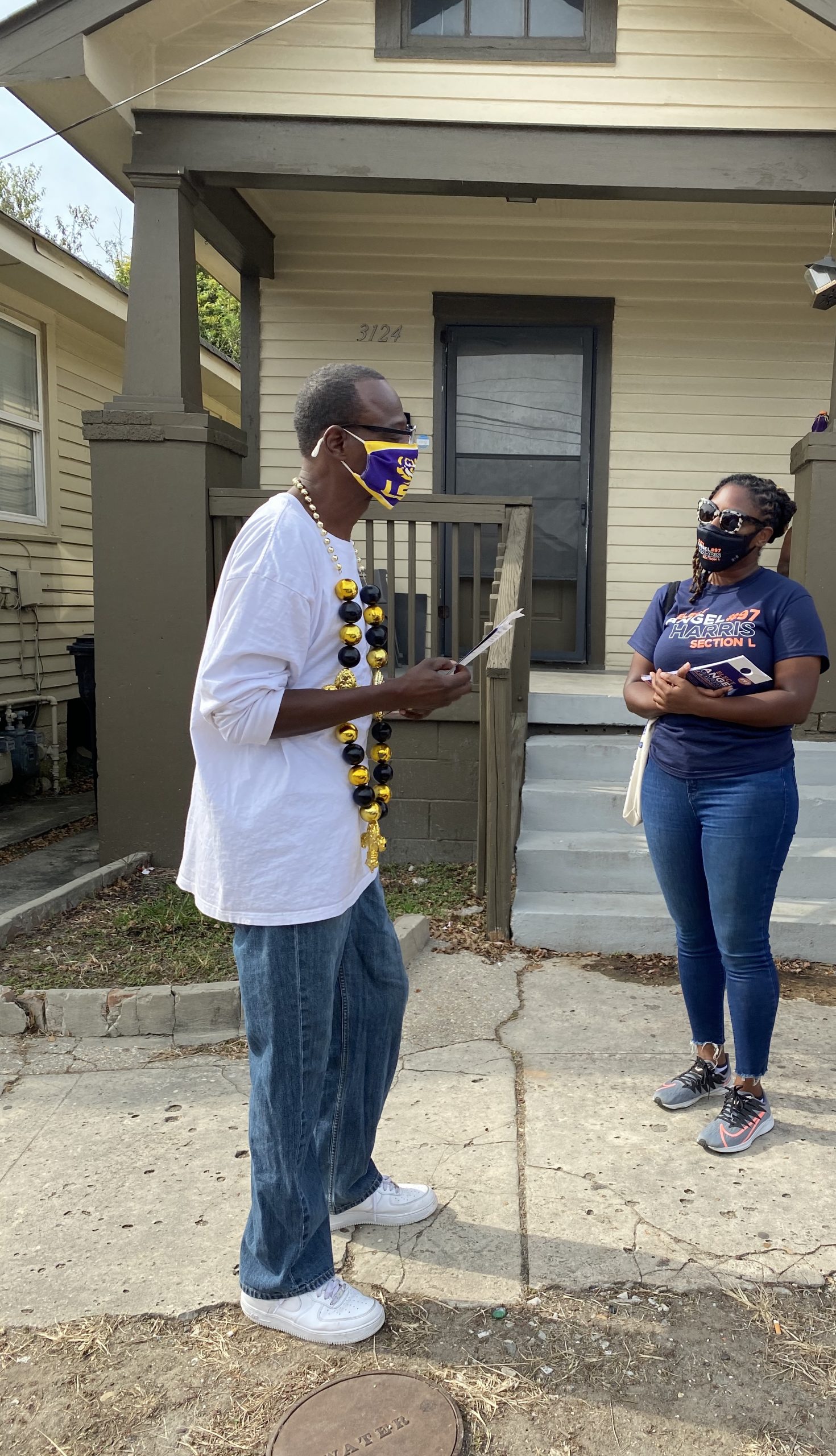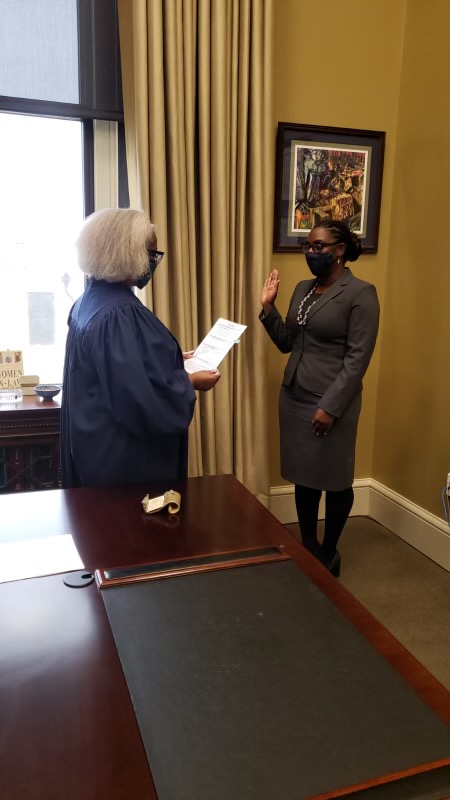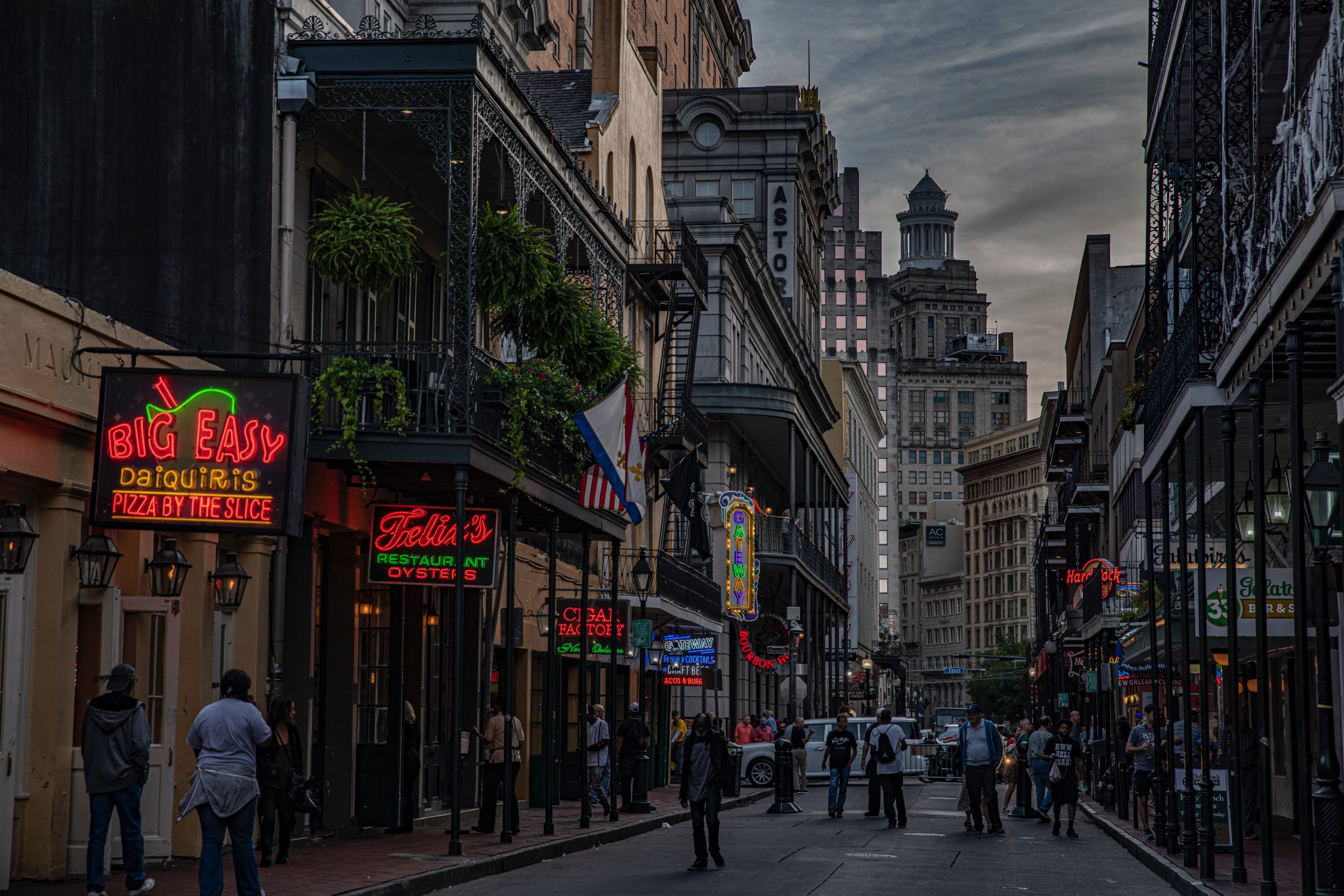In November, Angel Harris made history when New Orleans voters elected her, and not a longtime incumbent, to one of 12 sections in Orleans Parish Criminal District Court — where no incumbent judge had lost a reelection bid in 40 years. What set her apart was that she ran on a platform of reimagining the court system in the nation’s incarceration capital. And in one high-profile case a few months into the job, she realized one of her campaign promises, and newfound responsibility, when she agreed to release 27-year-old Yutico Briley, who had spent nearly a decade wrongly imprisoned under circumstances that are far too common in our criminal legal system. “This was a textbook example of the failings of our criminal court system,” Judge Harris said during a hearing in March, in a case that drew the attention of local media and The New York Times Magazine. On Sept. 2, 2021, via Zoom, Judge Harris shared with Inquest what her first nine months have been like on the bench, and how a former public defender and civil rights lawyer decided to enter electoral politics to tackle mass incarceration. This account, as told to Cristian Farias, has been edited and condensed for clarity.
When I was campaigning, I was surprised by how many people didn’t realize that they could vote for a judge. I live in New Orleans, Louisiana, the incarceration capital of the nation and the world, yet there was a population of people who did not know they had a say in who served on their courts. In conversations during my campaign, I asked folks how mass incarceration has helped our communities grow — whether it made our community safer, whether it made our communities healthier. The focus of my campaign was the community, because those are the people that I’m serving. And that is what my campaign focused on. I was out canvassing and talking with community members — talking with people who are directly impacted by what I will be doing on the bench. I campaigned in neighborhoods where I was told, “No one has ever come here to campaign in our community.” I talked to people at hair salons, car washes, grocery stores, bus stops, city buses — I was determined to talk to as many people as possible.
Having those candid conversations with individuals, and letting them know I worked in criminal defense, was how I was able to really convey, I know what it’s like to be in a courtroom. I know what people experience when they go in front of judges. And I knew what I didn’t like. I knew that my courtroom was going to be very different, and that I was going to treat people with dignity and respect. That I wasn’t going to demean or diminish anyone just because I had a file with their name on it. Or because they couldn’t afford to hire an attorney. That was one of the tenets of my campaign. Campaigning on that wasn’t aspirational because those are values I personally embody.

I was a public defender. I have spent my career working towards justice and grappling with our system of mass incarceration. And now I am trying to do that from the bench. I know that we can’t get to the root causes of mass incarceration if we don’t have conversations and view everyone as individuals — not using a one-size-fits-all approach, but recognizing that there may be some underlying issues that folks are dealing with when they come into court.
If you’re a public defender aspiring for judicial office, be ready for an uphill battle in navigating the politics. I never tell anyone that this was easy. I’ve always said that I didn’t want to be a politician. Politics was not my thing. But in Louisiana, to serve as a judge in criminal district court, you have to be elected. When I made the decision to run, I knew that there would be aspects of the campaign that I just would not be a part of, because that’s not who I am. When you’re talking about politics — those who are in power, those who have influence — I made a conscious decision to say, “I’m not going to work with particular people. It’s just not going to happen, even if that group or those people can get me money.” I didn’t care, because I know what my morals and my values are.
I was running against an incumbent. In New Orleans, particularly, you don’t go against an incumbent. That person is basically there until they retire or until they age out, because in Louisiana, you age out of district court at a certain age. That created another burden for me to overcome. But I made that decision intentionally because my entire campaign was about reimagining our criminal court system and changing the way that we’ve been doing things. And I didn’t see how we could do that if we had someone on the bench who was perpetuating the unfair and disparate treatment that I was talking about in my campaign.
Yutico Briley’s case is one that I’m grateful and proud I was able to engage with. His case had lots of issues. And I said it when I made my ruling that it was a textbook example of what can go wrong in our criminal court system. I had been on the bench for three months. And it was in that moment, when I was making my ruling in Mr. Briley’s case, where I felt the real power that I had as a judge. And how much good I can do from the bench. When I was campaigning, a lot of people asked, “Will you be able to make real changes?” And that case was an example of something that I can do that not only impacts Mr. Briley, but also as an example of looking at the relationship that we now also have between the state, the defense, and the judiciary — all of these parts working together. If it had been the previous DA who was in office, I still would have been able to make the decision that I made, but the process probably would not have been as smooth as it was.
It helps to have a district attorney, Jason Williams, who has a different vision from his predecessor, who was more punitive. But judges can’t be swayed by who the DA is. We have to go by what we feel the law is requiring us to do. Not because a certain person is the DA, I’m going to go with whatever they want. There have been times, even with a progressive DA, that I’ve gone against or pushed back on them and said, “I don’t think that’s the right thing to do in this case.” Or I’ll say, “Why is this case in front of me?” It doesn’t matter to me who it is that’s in office. I don’t think my decisions would change if the DA were still Leon Cannizzaro. However, there would probably be more opposition to my decisions. It is refreshing to have a DA and assistant district attorneys who are willing to take a different approach on cases while still representing and protecting the state.

We also have passionate public defenders in New Orleans. They fight hard. They are managing major budget crises, yet their lawyers remain dedicated and that matters in the cases I see. They spot issues, they raise legal claims, they investigate. As a judge, one of the ways that I can help out when there are conversations about the funding for the various offices is making sure that there’s parity between the funding for the DA’s office as well as the public defender’s office, because the public defenders are representing most of the defendants that are coming in front of the court.
Judges have lots of discretion. But of course, we have to act within the law. And we also can’t just reopen cases. So even if I see something, I can’t just on my own say, “Oh, something doesn’t seem right about this prior case that my predecessor ruled on.” Or, “Why did this person get this sentence?” Because even when we’re talking about reconsidering a sentence, there is a statutory timeframe within which someone can bring that. If it’s outside of that 30-day timeframe, there’s not much I can do about it. However, I can use those cases to help guide me when I make my decisions.
After hearing a case like Mr. Briley’s, I will take a deeper look at all of the cases that come before me. His case is a reminder to uphold the oath I took to uphold the law and ensure that justice is served for the people of New Orleans. His case happened to come in front of me, but there are so many men and women that will never come in front of me for any type of relief.
I became a judge after a career working on behalf of and for people implicated in the criminal legal system. I thought I could bring my perspective and experience to bear in a really meaningful way on the bench. And I strive to do that every day. There are frustrations and limitations, of course. But even when I get discouraged, I have seen firsthand the difference my presence can make on the bench.
Image: Unsplash

